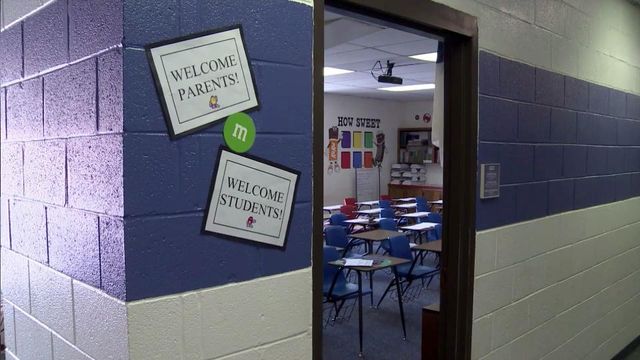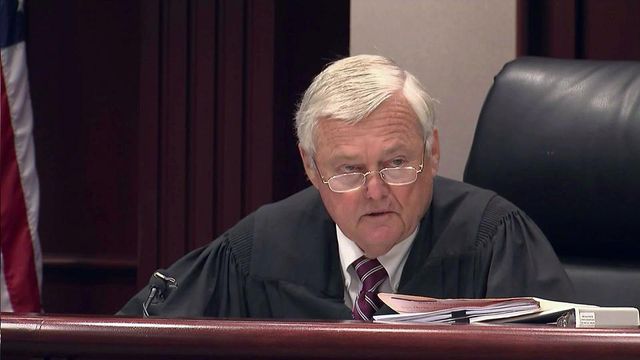Judge rules NC school voucher program unconstitutional
A Superior Court judge on Thursday overturned a state law that awards taxpayer-funded vouchers to low-income families who want to send their children to private or religious schools.
Posted — UpdatedJudge Robert Hobgood ruled that the Opportunity Scholarship program is and unconstitutional shift of state money away from public schools, upholding legal challenges filed by the North Carolina Association of Educators, the North Carolina School Boards Association and dozens of local school boards.
About 5,500 students applied for the annual grants of up to $4,200 per child, and the first $730,000 in tuition money for more than 360 students was supposed to be released Thursday – erroneous bank routing numbers delayed a planned disbursement last week.
Hobgood issued a permanent injunction prohibiting any state funds from being disbursed for vouchers, and officials were able to halt the electronic transfer of the money to various schools.
Elizabeth McDuffie, director of grants, training and outreach for the North Carolina Educational Assistance Authority, which is overseeing the voucher program, said more than 1,800 students chosen by lottery have already accepted Opportunity Scholarships, but not all have enrolled in private schools.
Some of the private schools with voucher recipients have already started class, and McDuffie and others said Thursday that they are still trying to sort out what happens next now that the funding for their tuition has been suspended.
"(The schools) can go ahead and admit these children and wait and see whether there’s any constitutional funds available, or the children can go back to the public schools, which will provide them an education with standards," said attorney Bob Orr, who represents the groups challenging the program.
The state Attorney General's Office plans to appeal Hobgood's ruling.
"Our attorneys believe that this is a constitutional issue that must be decided by the appellate courts," Noelle Talley, a spokeswoman for the state Department of Justice, wrote in an email.
Darrell Allison, president of Parents for Educational Freedom in North Carolina, which has pushed for the voucher program, said the vouchers should continue until higher courts settle the matter.
"We're literally going to yank that child out of that seat and send them back to a school district which the parents obviously didn't feel good about," Allison said.
Joy Faust's two children were to start first and second grade at Word of God Christian Academy on Monday.
Now she doesn't know what to do.
"How's it unconstitutional for me to make a decision to say 'hey, I want my children to have options,'" she said.
State lawmakers created the voucher program last year, setting aside $10 million for the Opportunity Scholarships to start in the 2014-15 school year. They added more money to the program in this year's budget to accommodate as many of the applicants as possible.
Voucher supporters have argued that the Opportunity Scholarships program would give low-income parents another educational option when public schools aren't meeting their needs. They also maintained that the state could save money by shifting some students to private schools because of the high per-pupil cost in public schools.
Hobgood ruled, however, that the private schools can discriminate in their admissions and don't have the same curriculum and teacher certification standards as North Carolina's public schools.
"Appropriating taxpayer funds to unaccountable schools does not accomplish a public purpose," he said.
Allison called Hobgood's ruling "a temporary roadblock" and expressed confidence that higher courts will reinstate the Opportunity Scholarships. Meanwhile, some families have already spent money on testing, applications and uniforms, he said.
"We need to act quickly because real lives hang in the balance as a result of this decision, and we're going to vigorously fight," he said.
A national group, the American Federation for Children, blamed the ruling on "petty, adult politics."
"Parents and children are counting on this program to provide them the educational lifeline they are so desperately seeking," Kevin Chavous, executive counsel for the Washington, D.C.-based group, said in a statement.
Rodney Ellis, president of the NCAE, said keeping state money in public schools will ultimately help all North Carolina students.
"Clearly, the idea of using taxpayer money to fund unaccountable private schools is unacceptable," Ellis said in a statement. "It’s a step in the right direction toward finding adequate funding for a high-quality public education for all students in North Carolina."
Related Topics
• Credits
Copyright 2024 by Capitol Broadcasting Company. All rights reserved. This material may not be published, broadcast, rewritten or redistributed.





